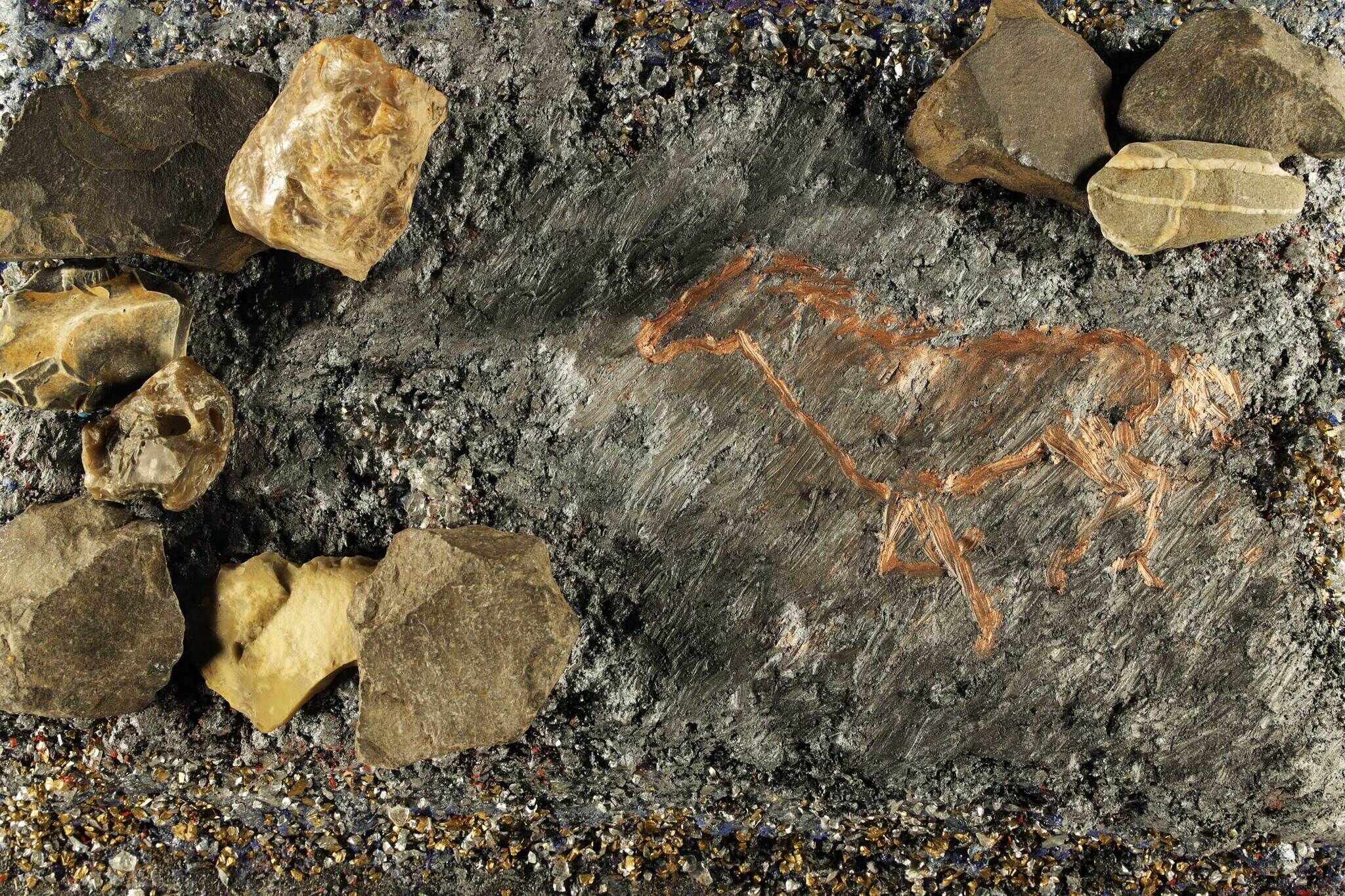Whitney Biennial 2024: Even Better Than the Real Thing | Art & Artists
Mar 20–Aug 11, 2024
Whitney Biennial 2024: Even Better Than the Real Thing | Art & Artists
Alisi Telengut (she/her)
60
Film
Born 1989 in Inner Mongolia (Telengut and Mongolian nations)
Lives in Berlin, Germany, and Tiohtià:ke/Montreal, Canada
In Alisi Telengut’s 2023 film Baigal Nuur–Lake Baikal, the artist uses hand-painted mixed media on a piece of metal to create a stop-motion animation that fills the screen with multicolored textural depictions of stars, the sun, volcanoes, rocks, and the fauna and flora of Lake Baikal in southern Siberia. Accompanying these visuals are words spoken by Marina Dorzhieva, an Indigenous Buryat woman from the Lake Baikal area, in the Buryat dialect of Mongolian, the endangered language of the Indigenous Buryat people. Dorzhieva recounts the origin story of the Baikal, which is the deepest, largest in volume, and oldest lake on Earth. Rooted in cosmology, the narrative unfolds around the arrival of an eagle who transforms into the first shaman, fostering a unified community of humans and non-humans along the lake’s shores. Natural sounds form a backdrop and are punctuated by the song of a khomus (mouth harp) played by Siberian sound shaman Spiridon Shishigin, using a traditional instrument from the Lake Baikal region. Reviving the animistic potential inherent in Indigenous forms of representation, Telengut’s film serves as a reminder of the vulnerability of natural resources, particularly in Lake Baikal, situated in one of the planet’s most rapidly warming areas.

